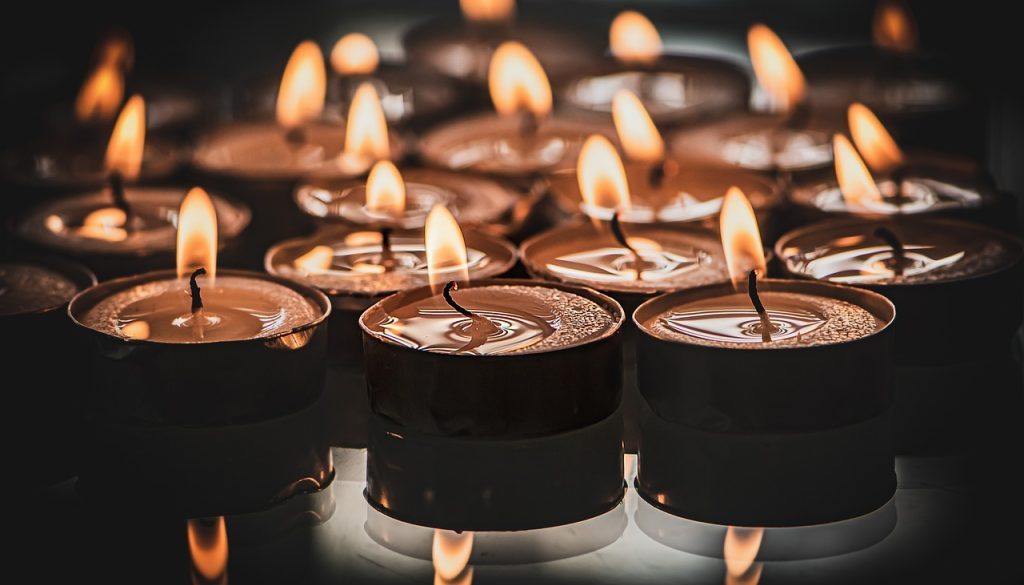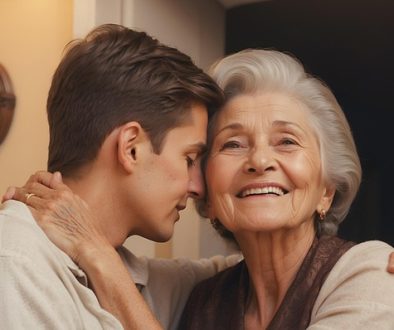How Hospice Care Accommodates Spiritual & Cultural Beliefs
By Maureen Rulison
Caregiver Support and Resources, LLC
Hospice care isn’t just a time for making loved ones comfortable as they transition through the dying process. Sure, we consume ourselves with the physical parts of dying – the pain, the sickness, the inevitable uncomfortability of it all – because it’s quite often the opposite of pretty.
As much as hospice care looks to make people physically comfortable in “the end,” the spiritual side so many of us hold dear doesn’t see this process as “the end,” but only another beginning.
So let’s take a closer look at how end-of-life care can – and does – factor spiritual and cultural beliefs for a more peaceful path to everlasting life.
A Spiritual Touch: How Hospice Care Honors Your Belief Systems & Traditions at End of Life
End-of-life care is a sensitive and important aspect of health care that requires specialized attention. Hospice care focuses on providing comfort and support to individuals nearing the end of their lives, as well as their loved ones who also require help through the process in different ways. Hospice is centered on the individual’s physical, emotional and spiritual well-being, which includes accommodating religious and cultural beliefs.
Dying is a sacred process in many faith traditions, belief systems and cultures. While our physical presence fades away, it’s only the beginning as we go to meet our Heavenly maker.
Hospice care providers understand that individuals and families have diverse cultural and religious backgrounds that shape their beliefs, values and practices. Honoring that requires more than just ensuring a clergy member is present to visit a deathbed or read last rites. In our life-care planning process, we must remember to advocate for these very important needs. Here are some things to keep in mind:
Freedom of Religious & Cultural Expression
Hospice care accommodates personal beliefs, first and foremost, by allowing the individual and their care partners to express their religion and culture freely. Hospice care providers encourage individuals and their families entering end-of-life services to share their faith-based values and practices with them as part of the “getting to know you” process. This promotes better understanding of the individual’s needs and preferences and tailors their care to meet them.
Hospice agencies understand and respect that individuals have EVERY RIGHT to express their beliefs, to practice freely and to receive spiritual services on their terms.
Special Rituals, Prayers & Treatments
The diversity of preferences and practices across many faith belief systems is eye-opening. Buddhists at end of life are big on safeguarding their awareness and consciousness in their dying days and hours, so treatment plans must avoid certain pain medications. Catholics require the sacraments including Holy Communion and the Sacrament of the Sick (aka last rites). Pentecostal families may pray “in tongues.”
The list goes on.
Hospice care providers are glad to work with the individual and their family to ensure that these practices are honored and accommodated freely. They can also help the individual and their family find spiritual support – such as a chaplain, favorite clergy member or spiritual counselor – who can provide guidance during this difficult time.
Dietary Preferences & Restrictions
Another way hospice care can accommodate religious and cultural beliefs is by providing food consistent with the individual’s faith and traditions. Some have specific dietary restrictions that must be followed.
Our friends of the Jewish faith prefer Kosher diets. Hindus may fast for periods of time. This list goes on, as well.
Hospice care providers are generally aware of dietary restrictions of religious and cultural significance. But your life-care plan should specifically spell out these stipulations and last wishes to ensure they’re followed to the letter. If end-of-life care is being delivered in a nursing home or other care community, family members must also be permitted to bring in food that is consistent with their beliefs.
Reflection & Closure
Hospice care providers also understand that end-of-life care can be a time of reflection and closure for the care recipient and their loved ones. For some individuals, this may include the desire to reconnect with their faith or spiritual practices. Some who are actively in the dying process tend to be VERY spiritual, even if they hadn’t actively practiced their faith in years or even decades. Some have attested to feeling much closer to the spiritual realm – closer to their Lord and closer to other relatives and loved ones who passed on previously.
Care professionals can work with the individual and their family to find opportunities for spiritual reflection and expression. These opportunities may include providing access to religious literature, arranging for religious leaders to visit the individual, or setting up a prayer or meditation space. Some may request specific verses to be read from their favored religious text.
If nothing else, hospice providers and volunteers can simply listen and be attentive to whatever a dying individual and their family needs to say. It’s a key part of dying with dignity.
Spiritual Care & Counseling for the Bereaved
The dying process isn’t only about the dying individual. Hospice care also recognizes the importance of addressing the emotional needs of bereaved family and friends – both leading up to and after their loved one’s death. They’re individuals with powerful spiritual and emotional needs, as well. They have a right to assistance to make sense of the process and peacefully accept their loved one’s passing to “the other side.”
Hospice care providers understand that end-of-life care can be a time of significant emotional distress, and they work to provide emotional support to both the individual and their family. This can include providing counseling services, support groups or other resources to cope with grief, loss and personal turmoil.
Hospice Care: Preparing Spiritual & Cultural Necessities at End of Life
In some religions and cultures, dying without certain prayers, rituals and attention to minor details can mean the person won’t reach the afterlife. Or salvation. Or enlightenment. Or whatever your particular faith prefers to call it in accordance with your cultural understanding of the universe. We often stress life-care plans with flexibility, but these spiritual requirements are non-negotiable.
If you need help planning, Caregiver Support and Resources, LLC has over 25 years of experience with all aspects of life-care planning including hospice and palliative care. We’re happy to provide referrals and guide the process in a caring and compassionate way.




